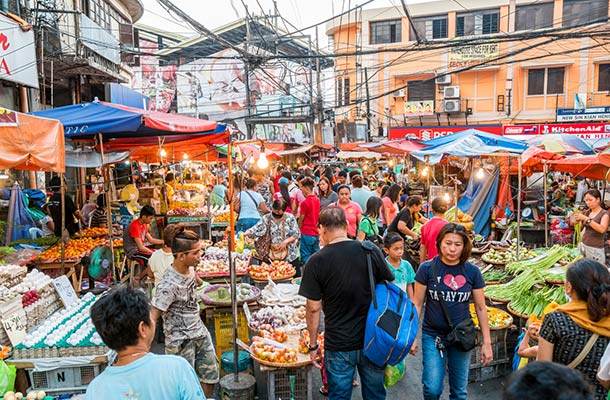
As OCTA Research Sees Rising Covid Cases, Concepcion Warns Of Consequence
April 26, 2022
Concepcion: ‘Fully Vaccinated’ Status Must Include Boosters Now That New Omicron Variant Is In PH
April 30, 2022
Freedom and Eternal Vigilance
The Philippines has done quite well during the pandemic. The success that we see is the greater mobility of people outside of their houses. We are enjoying life now and we can see it on our social media feeds. We have our freedoms back, we’ve earned them, but now we must be vigilant.
It was not without an element of luck that we did so well during the pandemic. The timing of the arrival of our vaccines and the decision to take a portfolio approach—meaning, get several brands—worked to our advantage as we can now do heterologous boosting.
The timing of the arrival of the vaccines meant our population had protection as the deadly Delta and highly contagious Omicron became dominant in the country.
But now it’s becoming a left-handed gift.
Just as our successful portfolio approach meant we had several manufacturers who could supply us with vaccines, this had the unexpected consequence of feeding the brand discrimination that was fueled by misinformation. Back then, this contributed to slowing down vaccinations as people waited for their brand to be available. Today, it’s the low risk classification of the Philippines that’s lulling people into complacency.
Early in the pandemic, it was not very hard to get Filipinos vaccinated. When they saw people dying in the hospital parking lots, even the online booking systems for the vaccinations couldn’t keep up with the demand. Today, the Department of Health (DOH) reports that some people do not want to take the vaccines even if it literally is at their doorstep, ready to be administered by a health professional, at absolutely no cost. Our daily vaccinations have slowed to a little over 200,000 from a high of 1.5 million last November.
This sense of complacency can cause us harm. I think it’s important that we maintain this wall of immunity. We don’t want to break the momentum, not now that even the Department of Finance is saying it will take two generations of Filipinos to repay the P1.31 trillion debt we incurred during the pandemic. Paying it back will need improved revenue collection, which can only be possible if our economy stays healthy enough to produce the taxes we need for the nation’s coffers.
The experts are already sending out warnings. The World Health Organization said we might have 300,000 active COVID cases in May if we relax our observance of health and safety protocols. Our friends at OCTA Research are also predicting a rise in cases by May or June, and are tracking closely the COVID cases in three countries – India, South Africa and New York – as these closely resemble our own COVID experience. The DOH is noticing an increase in cases in 14 areas in the country. Filipinos have become complacent. Even at parties, I see people taking off their face masks and not keeping a safe distance from each other. What I fear is that the fear of the virus is gone.
Yet, the experts at our Go Negosyo “Booster to the Max” townhall meeting last April 25 were all one in saying that we must continue to be vigilant because the virus is still very much around and trying to find ways to escape vaccine-induced and acquired immunity.
Among their observations: Face masks help, but they are not preventative, unlike booster vaccinations; outbreaks are more likely among communities with vaccination rates of less than 50 percent; vaccine and acquired immunity wanes over time; boosters restore antibodies to as high as a hundredfold and, more importantly, activates and sustains t-cells—the immune cells that target and destroy virus-infected cells; COVID deaths are more likely among the elderly and the unvaccinated; and many of those who had their primary vaccines last November to October might be no longer be protected today and need to get boostered.
Not one leader, not one government organization or task force, not one LGU can lift us out of this pandemic. It has to be a collective effort, every citizen doing his or her part. Getting vaccinated and updating that vaccination with a booster shot is the least that a Filipino can do to contribute to preserving the country’s economy and protecting his fellow Filipinos. We have done it before when we got our primary vaccinations, so it should not be so difficult to do it again. The immunocompromised are already being given priority with second boosters, and it won’t be long before other vulnerable sectors can also get theirs.
We often imagine ‘duty to the country’ as doing something heroic like going to war or running for office, but the truth is that it is in everyday, mundane things that we express our love of country. This includes doing our part in keeping ourselves and our loved ones safe and healthy, enough to live and be a citizen of the Philippines for more days to come.
The vaccines brought us back our freedom, but as they say, the price of freedom is eternal vigilance.

2/F RFM Corporate Center, Pioneer cor. Sheridan Sts. Mandaluyong City, Metro Manila, Philippines

